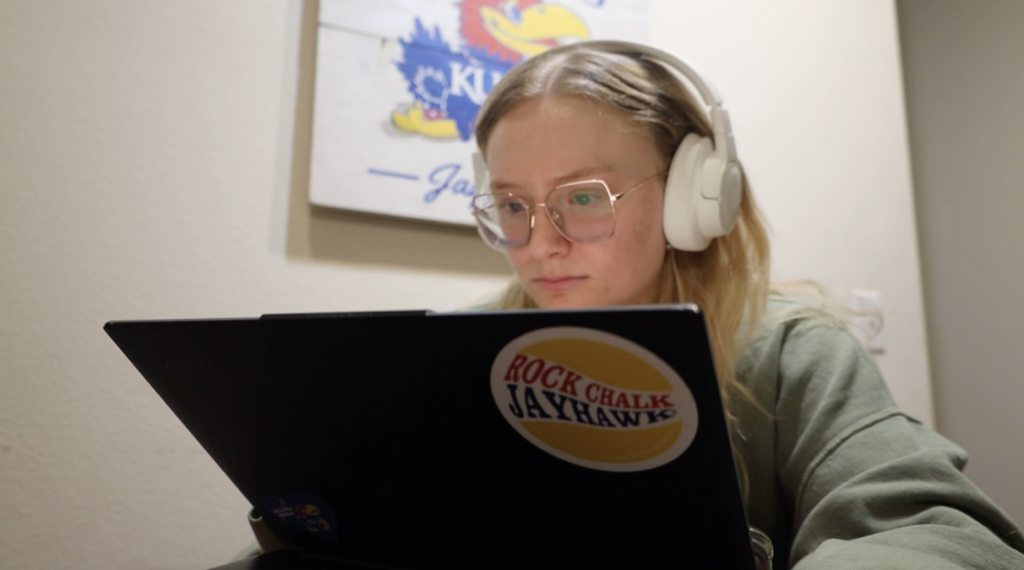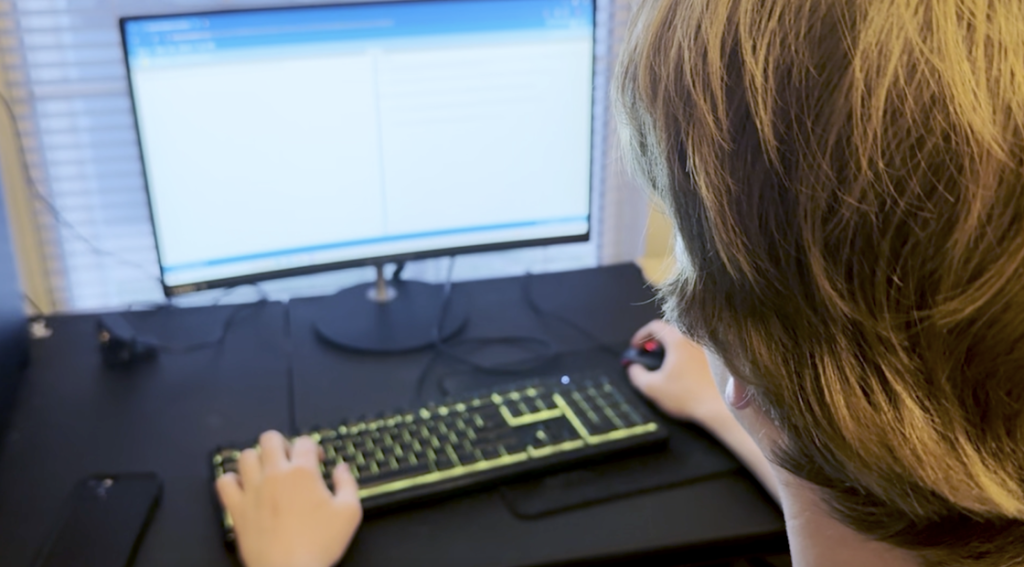For many University of Kansas students hoping to enter medical school, preparing for the MCAT is more than a study session; it’s a long-term commitment that requires sacrifice, discipline and resilience.
Grace Johnson | gj116837@gmail.com
The MCAT, or Medical College Admission Test, is a grueling seven-and-a-half-hour exam that tests students on biology, chemistry, psychology and critical reasoning. But for students juggling coursework, jobs and internships, finding the time and money to prepare is one of the toughest parts.
“I’m taking it April 5, so that was three months of studying every day,” said Ashley Simpson, a junior studying biochemistry. “Now that it’s two weeks away, I’m doing like six to eight hours a day.”

Students say preparing for the MCAT requires more than just time management.
“You have to schedule things weeks, maybe two weeks, ahead of time,” said Garrett Jensen, a biology major. “You have to look at your assignments and know what you have to get done. You have to be on top of things.”
For many, finding balance is the hardest part.
“Finding a balance between working and my academic life, as well as preparing for med school applications, has been really, really challenging for me,” said Cora Wills, a junior chemistry major.
Outside the classroom, students gain experience through volunteering, and internships are key pieces of a strong med school application.
“I worked with a plastic surgeon in Liberal, Kansas,” Jensen said. “I worked there with my dad as well. It was a great experience overall.”
Wills volunteers at the JayDoc Free Clinic in Northern Kansas City, a student-run clinic operated through KU Med.
“It’s completely free,” she said. “Just getting more face-to-face patient interaction and really getting my foot in the door in terms of learning the ins and outs of healthcare.”
But even with that experience, students face another hurdle: cost.
“To me, it kind of seems like a metaphor for the whole medical field, that it sucks as much money out of you as possible,” Simpson said.
Some students opt for self-study to cut costs. Others pay for test prep platforms or buy official practice exams from the Association of American Medical Colleges.

“I chose a self-study program; MCAT courses are expensive,” Wills said. “But I see it as an investment in my future.”
Even without a mentor or guide, Wills said she’s figuring it out on her own.
“I don’t really have a mentor. I’m figuring things out through trial and error,” she said. “But I know it’ll be worth it.”
For KU pre-med students, the MCAT is more than a test. It’s a turning point. And for many, the journey to medical school is just getting started.
